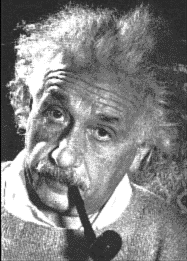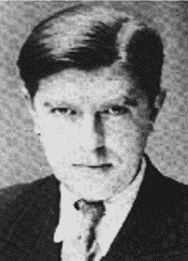 --------
--------
Different attitudes prevail, involving respectively;
(1) an attempt to reconstitute a form of unity, often projecting the hope that the alleged unwanted effects of scientific and technological progress will become comprehensible and eventually controllable;
(2) a relativist attitude, depicting the modern worldview, with its instruments and products (western science and technology), as one among many conceivable, and probably not the most desirable, course for humanity.
Each of these attitudes tends to portray the other as a caricature. 'Relativists' stigmatize attempts at unification as dictatorial, unfeasible and naive. Relativism, in its turn, is said to lead anywhere and nowhere at all.
The aim of the conference is to gather scholars from different domains, inviting them to set up a dialogue between the above attitudes, and integrate the more relevant insights of both into a new perspective on global change.
We have taken up the two myths of Albert Einstein and René Magritte (see also the Magritte Art Gallery), because we believe that where they 'meet' some significant clues might be revealed. How does science (producing knowledge and technology) confront art (producing revelations and sensations)? Do we have to oppose life 'within object' (the conscious ordering of the physical and social world, symbolized in ' Einstein') to a form of life 'beyond object' (symbolized in the imagery of Magritte)?
The meeting between Einstein and Magritte is presented as an experiment. With it we hope to progress beyond the many programmatical appeals that have been formulated in recent decades in order to cut across disciplinary boundaries. The experiment consists of bringing together scholars and creative performers who have already - in their own distinctive ways - taken a path that leads to interdisciplinarity-transdisciplinarity - albeit in different directions. In bringing them together, we invite them to set up a dialogue between different attitudes, and integrate the more relevant insights into a new perspective on global change.
In this respect, a number of our invited speakers have agreed to act as initiators in attracting attention to various problems, around which workshops have been set up:
"Chaotic Crossings: nonlinear dynamics in human biology and behaviour"
Coordinator: K. Madden (Washington)
Few areas of cross-disciplinary science are advancing as rapidly as those associated with chaos theory, fractals and complexity. The juxtaposition of discovery, development, and applications of analysis derived from these emerging areas of mathematics and physics is concurrently generating considerable excitement and skepticism. What is the substance of the newer analytical methods? How are they helping to advance our understanding of human biology and behaviour? Where are they leading us? What are their promises and problems for the structure and conduct of scientific inquiry? This symposium will convene a broad cross-section of expertise to address these and related questions. It is organized by the Foundation for International Nonlinear Dynamics (FIND) that serves as a focus for change specifically related to the emerging areas of mathematics and physics associated with chaos theory, as they may apply to human systems and the environment.
Coordinators: D. Aerts (Brussels) and J. Pykacz (Gdansk)
Based on studies of the properties of matter, the spectra of atoms and the motion of charged particles, quantum mechanics provided an extra-ordinary new framework for portraying physical reality. It is now recognized that quantum mechanics is basic not only to physics but to chemistry, biology and many of the other sciences. Beyond this, quantum mechanics has lead to the creation of new industries, such as semiconductors and optical communication, and has opened new paths of technology through the creation of exotic materials and devices like the laser, and the transistor, which contributed to the omnipresent computer.
Contemporary technology strives for a fine mastership of complex phenomena. As it tries to assume a precise control of the use of energy, of the memorization and transmission of information, of the creation of new materials and of biological and medical practice, a need for more and more miniaturization and rapidity is unavoidable. A systematic recourse to quantum processes is a consequence of this evolution, and therefore systems described by quantum mechanics are looked upon with an active attitude, while quantum mechanics, and the way these describe physical systems, are subjected to critical scrutiny. This development stimulates the theoretical study of quantum systems from the point of view of general systems theory. It calls for the introduction of clear, well understood, physical concepts in the quantum domain.
This symposium is organized by the International Quantum Structures Association (IQSA), a society for the advancement and dissemination of findings about structures based on quantum mechanics in their physical, mathematical, philosophical, applied and inter-disciplinary aspects. The aim of the symposium is to explore how the studie of quantum structure can contribute to the development of an integrated world view and scientific praxis. The aim of the symposium is to explore the idea that the study of quantum structures, in all its facets, is an important part of the development of an integrated worldview and scientific praxis.
Coordinator: F. Heylighen (Brussels)
This symposium discusses in which way theories of evolution and self-organization, on the one hand, and systems theory and cybernetics, on the other hand, can contribute to the development of an integrated world view. The basic theme is that evolution leads to the spontaneous emergence of systems of higher complexity or "intelligence": from elementary particles, via atoms, molecules, living cells, multicellular organisms, plants, and animals to human beings, culture and society. This development can be understood with the help of concepts such as selection, variety, hierarchy, autonomy, control, cognition, and metasystem transition. Such a perspective makes it possible to unify knowledge from presently separate disciplines: physics, chemistry, biology, psychology, sociology, etc. The resulting framework should provide us with an answer to the basic questions: "Who are we? Where do we come from? Where are we going to?". This symposium constitutes the 5th official meeting of the Principia Cybernetica Project, an organization aiming at the computer-supported collaborative development of an evolutionary-systemic philosophy.
(Abstracts and sometimes full papers of all selected presentations are available at the Evolution of Complexity WWW page)
Conference proceedings "Einstein meets Magritte : An interdisciplinary reflection on science, nature, human action and society", will be published, including contributions of participants.
Further Information:
You can also help us by forwarding the announcement to the interested people that you would know, or by making links to this WWW document. Thank you very much for helping us to make the "Einstein meets Magritte" conference a huge and successful event.
Einstein meets Magritte
Seated, his head resting in the palm of a hand
leaning against the steep back of the ivory tower.
Wrinkles on his forehead and a compassionate expression,
his fingers pointing to the line on the page,
other books arranged randomly around him
like autumn leaves.
She watches from far away,
straying with the wind that spins and plays,
and she dances and turns and robs the shine of sunlight.
She whirls closer to him and breaths silence,
dancing again, away, leaving whirling leaves in her trace.
The sun that seduces her is clear and deceiving,
sarcastic and complete, the wind her elixer.
She kneels and lays down on the ground.
Of all being and knowing, the ground that is without equal,
the one he invents and explores, and she fulfills and takes along,
open to her thighs, damp and spoilt.
It takes place and finds its way.
It has occurred.